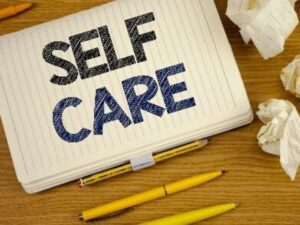Depression is a serious mental illness that can have a variety of side effects. Some people may not even realize they are depressed because the side effects can be so subtle. In this blog post, we will discuss some of the most common side effects of depression and some treatment options to manage them.
What Is Depression?
Depression (clinical depression or major depressive disorder) is a widespread yet serious mood disease. It is a mental illness that can have a profound effect on every aspect of an individual’s life. Depression causes severe symptoms that adversely impact how you feel, think, and manage your daily life activities such as sleeping, eating, and working. Fortunately, it is treatable, and there are many resources available to those who need help.
Symptoms
You may be depressed if you are experiencing any of the following symptoms for a long time:
- Sad or anxious moods
- Feelings of futility or pessimism
- Fatigue or a loss of energy
- Difficulties with attention, memory, and decision-making
- Guilt, inadequacy, or helplessness are common feelings.
- Interest or pleasure in hobbies and activities is lost
- Talking or moving more slowly
- Changes in your hunger and/or weight
- Thoughts about dying or attempting suicide are common.
- Aches and pains, migraines, cramps, and other inexplicable physical ailments that do not go away with medicine
Not everyone who suffers from depression has all of the symptoms. Some people only have a few, while others may have many.
Side Effects Of Depression
There are many side effects of depression that can impede an individual’s ability to function in day-to-day life. Some side effects include:
Weight Gain Or Loss
Appetite changes can occur in individuals with depression, which can result in unintended weight loss or gain. Excess weight is linked to a variety of health problems, including diabetes and heart disease. Being underweight has been shown to damage the heart, reduce fertility, and make people tired.
Increased Chronic Pain
People who are depressed often have unexplained pains and aches, including joint or muscular discomfort, breast tenderness, and headaches. The symptoms of depression can get worse when a person is dealing with chronic pain.
If people who already have a chronic health problem develop depression, their symptoms may become worse. Chronic diseases may be isolating or distressing, and depression may increase these sentiments.
A person with depression may have a hard time sticking to the treatment plan for chronic disease, allowing the symptoms to worsen.
Sleep Problems
Insomnia (difficulty falling asleep or staying asleep) is one of the most common symptoms of depression. A lack of sleep can have serious physical effects. This is especially true if someone else has additional depression indicators such as tiredness and decreased energy. People who are depressed may have trouble sleeping. They may feel exhausted as a result of this illness, making it difficult to properly manage both physical and mental health.
Sleep deprivation has been linked to several health issues, according to studies. Long-term sleep deprivation has also been linked to high blood pressure, diabetes, unrefreshing sleep and daytime drowsiness, weight-related problems, and some types of cancer in research. A sleep problem might sometimes be big enough to influence depression that it can help alleviate some of the signs of depression when treated.
Disruption In the Nervous System
Depression not only affects our emotions but also our physical health. One of the most serious side effects of depression is its effect on the nervous system. It affects the nervous system through a decrease in the level of neurotransmitters. Neurotransmitters are chemicals that help transmit messages between nerve cells. Depression can even affect the way we process information and make decisions. It can lead to a decrease in energy levels and an increase in pain. Due to low energy, you may experience headaches and stomachaches. Depression can make it difficult to enjoy activities that were once pleasurable for you.
A decrease in the level of neurotransmitters can lead to several problems, including:
- Anxiety
- Insomnia
- Fatigue
- Memory problems
- Difficulty concentrating
- Irritability
- Muscle aches and pains
Cardiovascular Ailments
Depression and stress complement each other. Stress hormones cause your heart to race and your blood vessels to tighten, making you feel as if you’re in a state of emergency for an extended period. This may result in heart disease over time. Depression strongly gives rise to a recurrence of cardiovascular issues than other disorders, such as:
- smoking
- diabetes
- high blood pressure
- high cholesterol
Depression increases the risk of dying following a heart attack if left untreated. The body’s stress reaction is harmful to one’s cardiovascular system and can lead to heart disease. It is just as dangerous to your cardiovascular health as smoking, diabetes, high blood pressure, or excessive cholesterol cause heart disease.
Gastrointestinal Problems
Digestive issues, such as diarrhea, vomiting, nausea, or constipation, are common in people with depression. IBS is a chronic illness that affects some individuals with depression.
This is due to a chemical called serotonin, which affects the brain’s response to stress by shutting down activity in the hypothalamus, pituitary gland, and adrenal glands.
Inflammation
There exists a connection between chronic stress and sadness. On account of this, inflammation takes place which may alter the immune system. Therefore, chronic inflammation might be responsible for depression. People with depression are more prone to lie down because of inflammatory diseases or autoimmune disorders such as irritable bowel syndrome (IBS), type 2 diabetes, and arthritis.
Problems In Digestive System
Depression not only affects the mind, but it also has an impact on appetite and nutrition. Some individuals manage depression by binge eating or over-consuming. This can result in weight gain and obesity-related diseases, such as type 2 diabetes. You might even lose your desire to eat or not consume enough nutritious food. Geriatric anorexia is a term for a loss of appetite in older people.
Eating problems may trigger symptoms including:
- stomachaches
- cramps
- constipation
- malnutrition
If a person does not eat a nutritious diet, he or she may not respond favorably to anti-inflammatory drugs. Medications too won’t help if a person doesn’t consume the proper food. Sweets and high-carbohydrate meals might provide immediate comfort, but their long-term effects are unpredictable.
Weak Immune System
Depression and tension can impair the immune system, making you more prone to illnesses and ailments. Stress hormones are released as a result of mental stress, causing blood vessels to constrict and putting the body into a stressed condition of emergency. According to a review, there appeared to be a connection between inflammation and depression, although the exact link is unclear. Stress has been linked to inflammation. Some anti-inflammatory medications have been proven to help people with depression.
Constant stress hormones can also cause your immune system to weaken, making you more vulnerable to sickness.
Sexual Health Problems
Depression can reduce a person’s sex drive, make it more difficult to become aroused, cause them to no longer have orgasms, or result in less pleasurable orgasms. Therefore, individuals suffering from depression experience relationship difficulties, which can impact their sexual lives.
Abrupt Lifestyle
Depression can impact every aspect of your life, including nutrition, education and career, health and concentration, as well as relationships. Depression isn’t just a psychological issue. It may also affect family, friends, and coworkers.
Aside from that, depression may have an impact on how well you do your job, how attentive you are, and hence your productivity. According to doctors, it is critical to treat depression since if left untreated it can lead to severe consequences in terms of both personal and professional life.
Deterioration In Memory
Emotional and mental stress can lead to memory loss. Blood flow to the brain is restricted when your body is in a state of anxiety or stress because the body doesn’t prioritize memory. This is why sadness might make it difficult to concentrate or think clearly. It may also cause short-term memory loss, according to research.
Emotional Imbalance
Depression can cause a variety of emotional health problems. It can make you feel anxious, stressed, and helpless. It can also make you feel sad, empty, and hopeless. Depression can even lead to thoughts of suicide. There is a high degree of emotional imbalance because of the side effects of depression. It can be hard to enjoy activities that used to make you happy. You may feel like your life isn’t worth living. These are all serious side effects of depression that need to be addressed.
These are some major effects of depression on physical and emotional health. They can take a substantial hold on your life if the root cause of such type of issues is not treated well on time.
Treatment Options
There are many types of treatment options available to cure depression. One needs to be aware of all kinds of solutions beforehand so that selection of the most suitable option becomes easy. Let’s discuss each solution one by one:
Therapies
Several distinct types of psychotherapy can aid in the recovery from depression, particularly for those suffering from mild to moderate forms of illness. Some useful therapies in this regard are:
Cognitive-Behavioral Therapy
Cognitive-behavioral therapy, known as CBT focuses on both the depressive thought patterns and the behaviors that contribute to depression.
Keep a diary of the events of the week, and note down any negative reactions to them if your therapist requests it. Negative responses to events (also known as automatic negative reactions) are only one type of thinking you may work on over the course of CBT.
Your therapist collaborates with you to acquire new ways of thinking and reacting after you’ve figured out how to recognize your reaction tendencies. Positive self-talk is another thing you may practice.
Dialectical Behavior Therapy
CBT is the foundation of dialectical behavior therapy. The major distinction is that it asks persons who are depressed to recognize and accept their bad ideas and actions. Individuals can come to terms with their negative emotions, learn to cope with stress and regulate their reactions to it, and even improve their relationships with others through the practice of validation.
Psychodynamic Therapy
According to psychodynamic therapy, depression stems from unresolved conflicts that frequently originate in childhood. The aim of psychodynamic therapy is for the patient to become more conscious of their entire range of feelings, including contradictory and distressing ones, as well as help them better cope with these emotions and put them in a positive perspective. This technique can be useful for investigating previous experiences and seeing how they might relate to feelings of sadness.
Interpersonal Therapy
Feelings of sadness are sometimes associated with interpersonal difficulties, particularly if they are prolonged. Interpersonal therapy is a type of therapy that focuses on these topics by looking at past and present social roles and interpersonal interactions. It focuses on examining important people in your life, such as your spouse, friends, family, and co-workers. It determines the function these connections that play in your life and discover methods of resolving issues.
Your therapist may want you to practice and improve your communication through roleplay. His aim is to make you able to apply these ideas in your relationships and create a stronger social support network.
People usually feel better with the appropriate treatment as your mental health care provider can help you in the following ways:
- They will discover what’s going on with you, use the analysis, and see how it matches up. You can receive guidance about the baseline mood, current events that might be triggering factors, and how you can use the insights from this study to get help for depression.
- They will set reasonable objectives for the future to accomplish.
- You can identify your faulty thought processes or harmful behaviors that feed feelings of hopelessness and helplessness.
- Therapists help develop coping skills to manage symptoms and difficulties, as well as the ability to identify or prevent future depressive episodes.
There is no “correct” approach to psychotherapy. Therapists collaborate with their patients to establish unique treatment plans that address their particular challenges and concerns. Psychotherapy may aid patients in learning how to handle stress and reduce their depression symptoms. These techniques might help people get better, allowing them to function at their best.
Self Help Strategies
You can establish healthy routines to overcome depression. In many situations, developing healthy behaviors assist you in controlling your symptoms. Some tips to follow are:
- Say no to consumption of drugs, alcohol, and smoking.
- Be kind to your body by exercising daily. Exercise and diet choices may have a significant impact on the relief of certain symptoms.
- Ensure your quality sleep. Disrupted sleep is a common side effect of depression, so aim for at least seven to eight hours per night.
- Spare time for yourself. Dedicate some time every day to doing things you enjoy. This can be something as simple as reading a book, taking a walk, or listening to music.
- Socialize with the people who make you feel good. Spend time with family and friends who make you feel loved and supported as it releases feel-good chemicals in the brain. It will make you feel relaxed and happy.
- Take some time off to relax. It will help to change your environment and give you a chance to remain calm. Even if it is for a short time, it can make a big difference.
- Stay connected with nature. Spend time outside every day, even if it’s just for a few minutes. Breathe in the fresh air and take in the beauty of your surroundings. Nature has a way of putting things into perspective. It makes you feel more at ease and will surely help you in the long run.
Lastly, give yourself grace. Depression takes time to heal. Be patient with yourself and don’t expect too much too soon. Give yourself credit for the progress you have made, no matter how small it may be. Remember that healing is a journey, not a destination.
Conclusion
There exist various side effects of depression that are potentially severe also. If you are experiencing any side effects, it is important to reach out to a mental health professional. There are a variety of side effects that can come along with depression. These side effects can be physical, cognitive, and emotional. Treatment at right time is very important for the side effects of depression. Keep an eye on them unless it gets too late. Never live your precious life in the shadow of depression.
After all, life is too short to be spent in an endless cycle of sadness. side effects of depression, side effects, depression, mental health, cognitive, and emotional you are struggling with the side effects of depression, it is essential to reach out for help.
For more information, please contact MantraCare. Depression is a mental illness characterized by persistent feelings of sadness, hopelessness, and loss of interest in daily activities. If you have any queries regarding Online Depression Counseling experienced therapists at MantraCare can help: Book a trial Depression Therapy session







